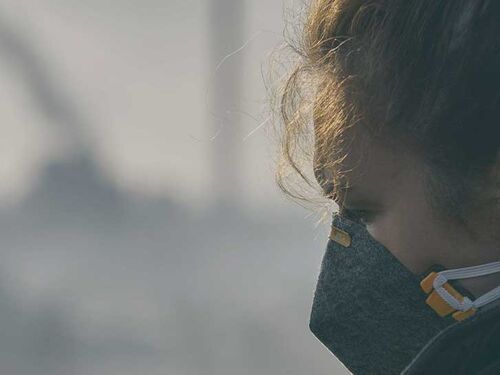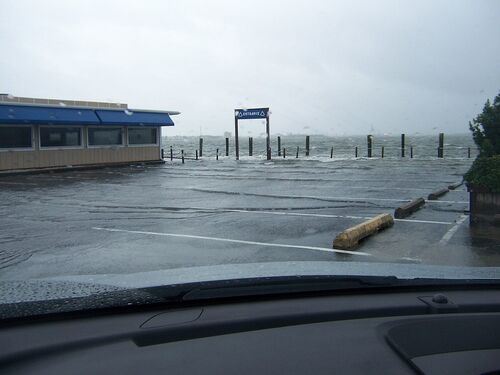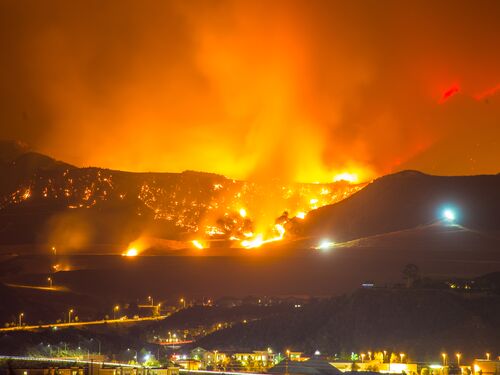Is global warming making heat waves worse?
Based on Science
Global warming is affecting how hot heat waves get, how long they last, and how often they occur. The toll of heat waves on human health is expected to increase as global warming continues.
Last update August 23, 2021
Heat waves are already dangerous to people’s health.
Extremely hot weather can make people sick and even die. Heat waves are a leading cause of weather-related deaths in the United States, killing more than 600 people each year. Extreme heat can make existing health problems worse and can cause heat stroke or heat exhaustion even in healthy people.
Older adults, young children, and people with chronic conditions face the highest risk.
People who work outdoors or in hot conditions are at special risk of heat stress, as are people who don’t have access to air conditioning or cooling facilities.
For pregnant women, extreme heat exposure is linked to more preterm births and poorer pregnancy outcomes, including low birth weight and infant death
Extreme heat can make some mental health conditions worse.
Anyone can be affected by extreme heat, especially during strenuous activity. Some medicines increase this risk by affecting the body’s ability to regulate temperature.
Global warming will intensify the health effects of heat waves.
Heat waves are periods of unusually hot weather, typically lasting for 2 or more days, outside the historical averages for a given area. Heat waves have happened in the past, but climate change is making heat waves longer, more extreme, and more frequent. We know this by observing how often new daily high and low temperature records are set. Daily temperatures are measured at hundreds of weather stations around the globe. In the United States, high and low records at weather stations were set at about the same rate in the 1950s, yet since the late 1960s, the number of record daily high temperatures measured each year has been increasing at a faster rate than record daily low temperatures. This shift is largely due to far fewer record daily low temperatures in recent decades. That pattern was evident in January 2019, when there were 17 cold record temperatures set around the world and 269 heat record temperatures.
Scientists also study extreme event attribution to find out if the warming climate has made an extreme event like a heat wave more severe or more likely to happen. They use computer models to simulate weather conditions with or without global warming and other contributing factors. By comparing different scenarios, scientists can tell that global warming is making heat waves worse.
Worsening heat waves are likely to increase the number of heat-related illnesses and deaths. By the end of the century, the United States is expected to see thousands of additional heat-related deaths each year because of climate change. Heat waves can be more extreme in cities due to the urban heat island effect, so growing urban populations could contribute to the number of people affected.
There are steps that you can take to reduce the health toll of heat waves.
Many health problems and deaths related to heat waves are preventable. For example, people can learn the warning signs of heat-related illness, drink more water when it’s hot out, and keep cool with lightweight clothing, showers, and air conditioning, if available.
Communities can also take steps to reduce the impacts of heat waves and protect vulnerable populations. For example, cities can offer community cooling centers, warn the public when a heat wave is coming, and improve infrastructure to avoid power outages and ensure access to water. The urban heat island effect can be reduced by using cool pavements, increasing tree and vegetation cover, and making changes to building roofs so they don’t absorb heat. Individuals can contribute too, for example, by making their homes more energy efficient so that less energy is needed for heating and cooling.
In the longer term, there are steps we can take to reduce global warming and its impacts on society—including the intensification of heat waves—which begin with cutting back on greenhouse gas emissions.
ADDITIONAL RESOURCES
More like this
Discover
Events
Right Now & Next Up
Stay in the loop with can’t-miss sessions, live events, and activities happening over the next two days.
NAS Building Guided Tours Available!
Participate in a one-hour guided tour of the historic National Academy of Sciences building, highlighting its distinctive architecture, renowned artwork, and the intersection of art, science, and culture.



